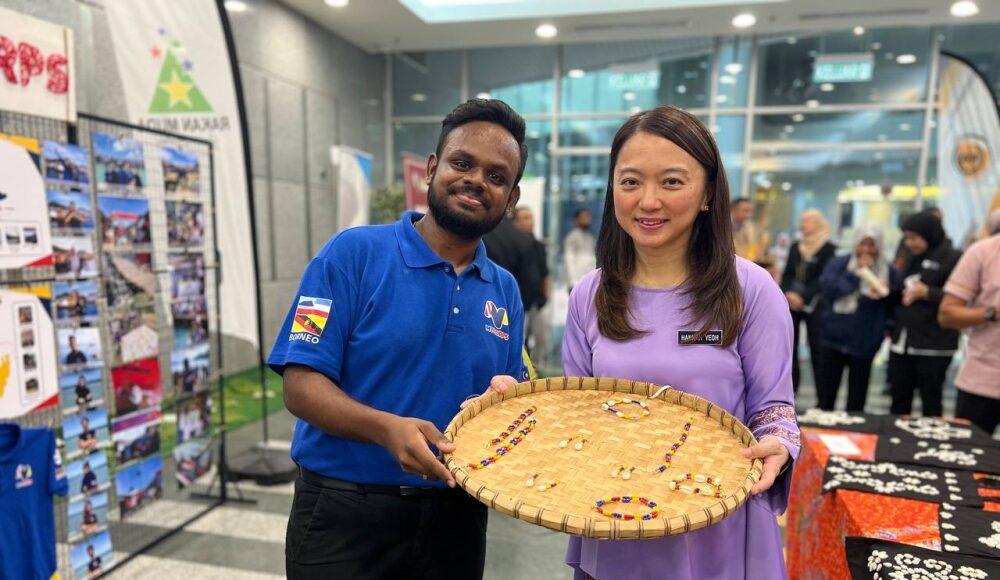MARCH 31 — “Don’t ask what your country has done for you—ask what you have done for your country.”
This phrase, loosely taken from President Kennedy’s famous inaugural speech in 1961, has always lingered in my mind. I finally found my answer when I was selected for MyCorps Mission 9 @ Borneo 2.0 out of 300 applicants from all over the country.
For the uninitiated, MyCorps is a Malaysian international volunteering program initiated by the Ministry of Youth and Sports, with previous missions spanning various countries. This time, the focus was on Borneo, where 20 volunteers were deployed across four locations: Kuching, Miri (Sarawak), Semporna, and Kota Kinabalu (Sabah).
After an intensive three-day pre-departure training, I was anxious about my placement. Everyone secretly hoped to be grouped with familiar faces, and I was no different. When the announcement came, I was assigned to an illegal settlement in Kuching. My reaction was mixed—relieved to stay in an urban area, yet shocked to learn that such a settlement existed just five minutes from a shopping mall. More daunting was my team—four strangers I had barely interacted with during training.
Kampung Chawan, our deployment site, had been home to families for three generations. My first encounter? A cemetery right beside their homes. Though I don’t believe in ghosts, I was still unnerved. But the real shock came when I discovered they had no electricity, relying on generators for decades. Their houses—cramped wooden structures—were vulnerable to fires and storms. Across a ditch stood two-storey bungalows, a stark contrast to their reality.
Many residents had migrated from rural areas seeking jobs but remained trapped in blue-collar work due to limited education and skills.
As a computer science student, I felt the weight of responsibility. How was I supposed to help them? On top of that, my team had entrusted me as the leader. We began with a community needs assessment, interviewing residents to understand their struggles. What touched me most was the resilience of the children. Despite their challenges, some had made it to university, driven by the belief that education was their only way out. Their determination humbled me. If they could push through, what excuse did I have for ever complaining?
The author with Youth and Sports Minister Hannah Yeoh.
From our assessments, we identified key issues: education, entrepreneurship, welfare, health, and infrastructure. We knew that framing the problems correctly was crucial—once done, 70 per cent of the work was already complete. One initiative especially close to my heart was Program Chawanpreneur: UsahaWanita, aimed at empowering women through entrepreneurship.
Our first interviewee, Aunty Rebecca, showed us a long dress made of buriek, a traditional seashell-stitched fabric. She and other women had learned this craft but never considered selling it, doubting its value. Some felt no one would buy their work; others lacked business knowledge. The solution was clear—help them turn their skills into income. We identified 14 women skilled in batik craft-making and provided them with business training and market access.
We organized a business workshop, led by En. Heineken, the CEO of Timogah. The session was a success, and by the end, many participants had solid business ideas. However, something still bothered me—the buriek dress. The women lacked confidence in their craft, so I proposed a competition, shifting focus to smaller, marketable items like tote bags and bucket hats. The idea took off. At the end, we surprised the winners by announcing their products would be sold, with all proceeds going to them. Their reaction was priceless.
Now, we had products—but how would we sell them? We approached vendors at Waterfront Kuching, but formalizing sales required processes we couldn’t complete in a month. It felt like a dead end. Had I failed them? Instead of giving up, I pivoted. I learned that our closing ceremony would be attended by Ministers Hannah Yeoh and Adam Adli. I convinced the organizers to let us set up a booth. On the big day, I introduced the ministers to our crafts. They not only bought the items but also recognized the women’s work on a larger platform.
That moment taught me an invaluable lesson—social impact isn’t just about results. It’s about transforming how people see themselves. Confidence is the first step to change.
In total, we completed 30 projects, impacting over 150 individuals and securing RM2,000 in donations. From massage classes to healthcare programs, every initiative was met with overwhelming participation. The people of Kampung Chawan wanted to change their lives—they just needed the right push.
To the youth out there—be the change you want to see. Step forward, get involved, and don’t be afraid to take action. Volunteering isn’t just about giving back; it’s about growing, learning, and finding purpose in unexpected places. Challenges will come, doubts will creep in, but trust me, everything happens for a reason. If you find yourself in the heart of the struggle, know that you are there for a reason. Keep pushing through, and one day, you’ll find the answer you’ve been searching for.
And now, if someone asks me, “What have you done for your country?” I can proudly say: I have done something.
*The author is a final-year student at the Faculty of Computer Science and Information Technology, Universiti Malaya, and may be reached at [email protected]
** This is the personal opinion of the writers or publications and does not necessarily represent the views of Malay Mail.





